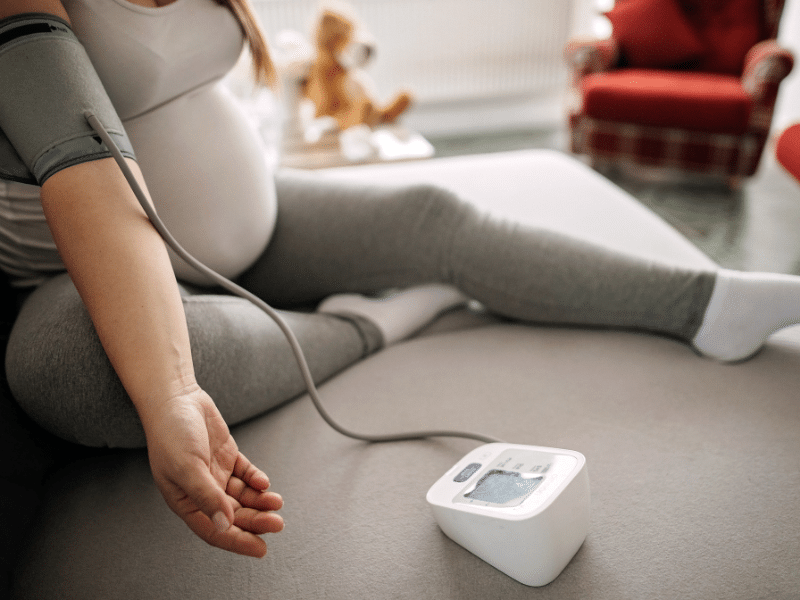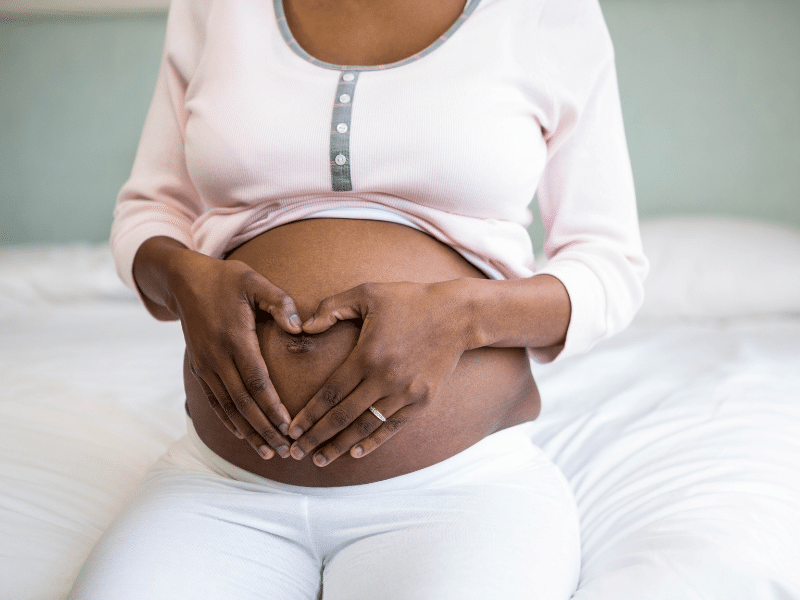Regular prenatal care is the best way to catch pre-eclampsia in its early stages. When you visit your healthcare provider, part of a routine prenatal visit includes a blood pressure check. Pregnancy can cause different things to happen in our body and one of those is an increase in blood pressure.
What’s pre-eclampsia!?
Pre-eclampsia is different from other high blood pressure conditions during pregnancy in the way that it includes elevated blood pressures, involves other organs and moms have protein in their urine. Pre-eclampsia generally develops after 20 weeks of pregnancy.
What needs to be done?
Blood work and urine samples are done regularly, as we want to make sure other organs are functioning fine with this increase in blood pressure. You will also have a few extra ultrasounds. The ultrasounds are done to check on the baby but also to make sure the placenta is looking healthy and functioning properly. We want to make sure there is not reduce blood flow into the placenta which could lead to reduced blood and oxygen flow to baby. We want to make sure the placenta has what it needs to continue to supply baby with everything needed to grow and develop appropriately.
Moms with pre-eclampsia will be put on the induction list. The risk of the elevated blood pressures on your body and placenta outweighs the benefits of waiting for labor to naturally happen if you go past term gestation.
What to look out for!
Moms are taught signs and symptoms of elevated blood pressure’s, so they know what to watch out for. They are encouraged to check their blood pressures at home and to seek help if the numbers are elevated. They are also instructed to watch for headaches, visual disturbances (seeing spots), blurry vision, epigastric pain, nausea and/or vomiting. Edema, swelling to limbs, can be common in pregnancy but can also be a sign of increased blood pressures. Healthcare providers would instruct mom’s if they have any of these signs of worsening pre-eclampsia, they should seek help. In the hospital, pre-eclamptic moms could be expected to be asked these questions and also have their reflexes checked regularly.
Treatment
Pre-eclampsia doesn’t go away on its own until your baby is born. Some pre-eclamptic moms need to be started on medications during the pregnancy to control the blood pressure and keep the condition in check. Its important to get treated for pre-eclampsia right away to avoid it progressing to more serious conditions.
If you want more information on elevated blood pressures in pregnancy, please reach out to a Antea Corluka, RN to learn more about your appointment options!


